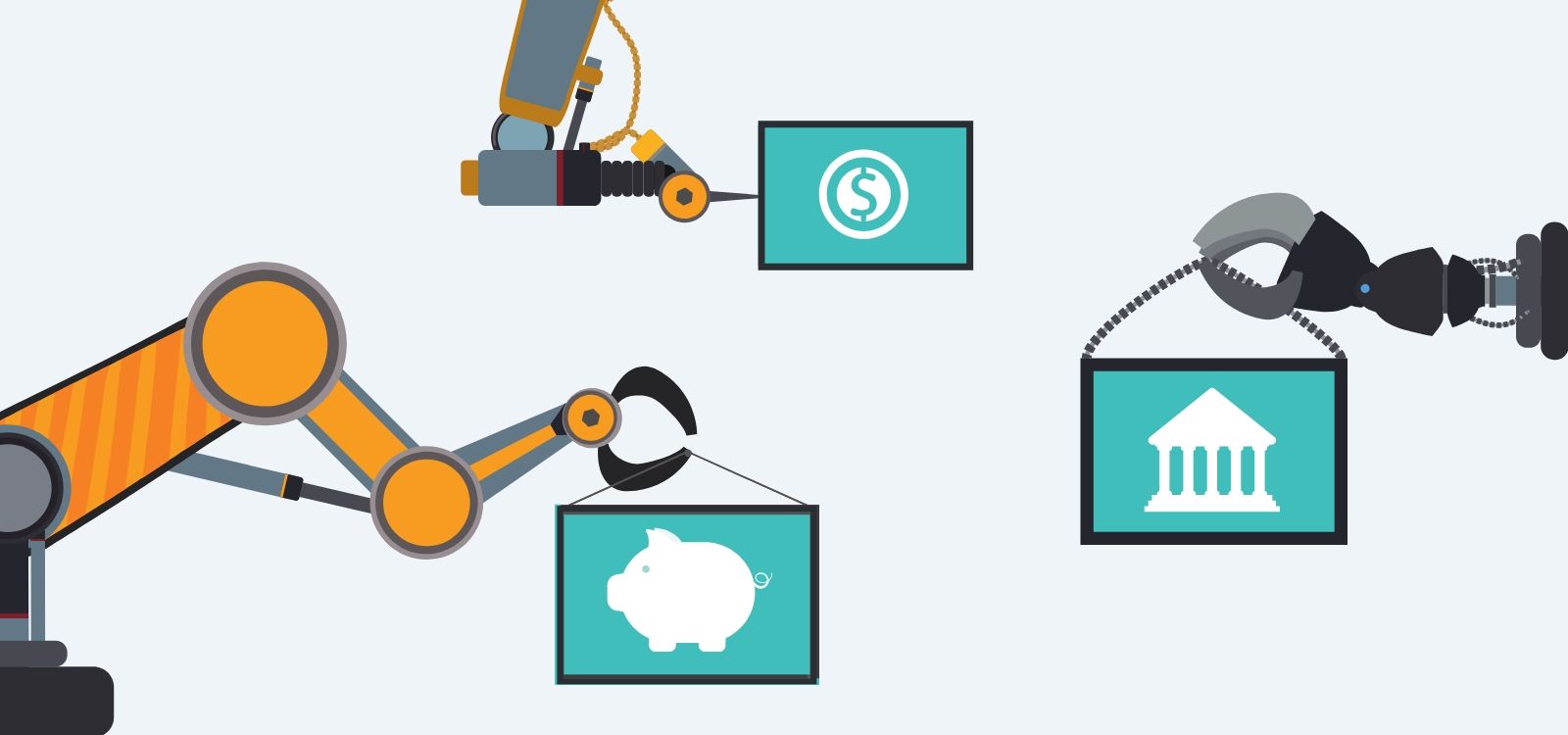“The relationship between human intelligence and artificial intelligence will necessarily be one of symbiosis. The challenge and potential of exploring this co-evolutionary future is the biggest story of the next century and one in which a closeness in development velocity is a necessity.” —Bryan Johnson
Artificial intelligence has made waves in its emergence into mainstream business.
Not only do consumers stand to benefit from personalized service and expedited assistance; financial services firms big and small have been learning the ropes and working to implement AI in a way that benefits them, too.
With so much emphasis on topics like data security and compliance, many financial professionals find themselves worrying more about back-end work and less about customers.
AI can help automate the more mundane, repetitive aspects of the job and make day-to-day work easier and more fulfilling.
Below, we’ll explore some of the more notable ways that financial services firms are leveraging AI in today’s market. From virtual personal assistants to predictive analytics, artificial intelligence is spurring massive changes in the way the financial sector operates.
1. Customer Service and Virtual Assistants
AI technology has afforded us the capability to create our own on-demand personal assistants and customer service representatives.
Financial services firms can implement chatbot services on their websites to help clients navigate site pages, answer tough questions, and set up appointments. This offers clients a more personalized, live experience and helps cut down on busy-work.
Bank of America’s company chatbot, known as Erica, offers clients financial guidance over text message and by voice. Because Erica is available 24/7, customers can get help with anything from transactions to account services around the clock.
This means that Bank of America doesn’t have to hire additional employees to answer basic questions and current staff are freed up to handle more complex problems.
Furthermore, firms like Capital One have made strides to increase diversity and inclusion by prioritizing ethical AI and working to create algorithms without the racial biases and blind spots that inadvertently come along with human-engineered technologies.
Digital personal assistants built from AI technology can also help speed up the workday and improve employee productivity.
Financial professionals are treated to unparalleled levels of convenience when they elect to rely on digital personal assistants to help get through daily minutiae, such as scheduling reminders, voice-dictating messages to clients, and more.
2. Large Datasets: Analysis to Insights
Professionals across a host of industries have always collected data, but they haven’t always been able to analyze and leverage that data usefully.
Banks and other financial services firms especially collect massive quantities of data from their customers.
Whether it’s personal information like social security numbers and credit scores or numbers-based data like account balances, there’s a lot of data.
Leveraging AI makes protecting, analyzing, and using this data infinitely easier than it’s ever been before.
What would once comprise scores of meaningless information can now be transformed, thanks to AI technology, into actionable insight. AI can be used to analyze data sets, make predictions about clients and finances, and conduct better business.
Tailored mobile banking apps, for example, can collect and analyze user data in order to improve and personalize the user experience.
AI can also handle much of the grunt work behind creating customized investment and spending plans. Tasks like budgeting and personalizing financial advice become far simpler when you have AI to perform calculations and present the necessary information.
3. Improved Risk Assessment
Risk assessment is a critical factor of any financial firm.
Firms run the risk of making choices that are detrimental when they rely solely on human instinct and questionable data to make decisions.
Firms around the world constantly contend with lost funds due to human error and slow work speeds; automation in these areas serves to keep business running and ensure a firm’s funds are protected.
A client’s ability to make payments on a loan, for example, is a summation of far more than just their credit score and basic financial history but understanding the interplay of all these factors with the human mind alone is nearly impossible.
AI can look at a wealth of factors that may influence an individual’s ability to pay back a loan or meet financial goals. Loan repayment habits, spending habits, current assets, and countless other facets of a client’s financial wellbeing can be analyzed and turned into valuable insights.
Firms around the world constantly contend with lost funds due to human error and slow work speeds; automation in these areas serves to keep business running and ensure a firm’s funds are protected.
4. Streamlined Regulatory and Compliance Humdrum
AI is poised to take over a majority of the compliance-based tasks that risk and compliance professionals have to deal with on a daily basis.
This technology has the power to free up employees for client-facing work and other important duties and ensure that your firm remains compliant with regulations.
Ascent, for example, uses AI to map a financial firm’s specific regulatory obligations and ongoing rule changes, generating the knowledge that is traditionally done manually by regulatory analysts and risk/compliance teams.
By augmenting their existing resources with Ascent, financial firms enable and empower their people to accelerate their regulatory change and end-to-end obligations management processes.
ING and Commbank recently saved thousands of hours of human effort in identifying their regulatory obligations by using Ascent.
5. Fraud Detection and Cybersecurity
Through the use of machine learning techniques, AI systems can be trained to monitor for and detect irregular financial behaviors.
Real-time analytical capabilities and immense improvement in predictive accuracy have essentially created accessible virtual security guards.
Whether these behaviors have to do with transactions and purchases, client history, or other financial acts, AI can flag potentially problematic instances so that firms know who and what to review and why.
AI applications can scan through enormous amounts of data and access a deeper knowledge of historical trends than even the most seasoned financial pro — and that gives AI the upper hand when it comes to pinpointing fraud.
AI also plays a critical role in protecting data concerning both a firm and its clients.
With cyber-crimes on the rise, having the added layer of protection that artificial intelligence offers can be a significant weight off of any firm’s shoulders.
Real-time analytical capabilities and immense improvement in predictive accuracy have essentially created accessible virtual security guards.
Citibank is already leveraging AI and machine learning technology to help put a stop to criminal activities and keep a close eye on potential threats to customers. They’ve invested more than $11 million in the launch of a new personal finance app and adopted new anti-money laundering structures to keep their customers safe.
Enjoy this article? Subscribe to receive helpful content designed to help you win at compliance.







